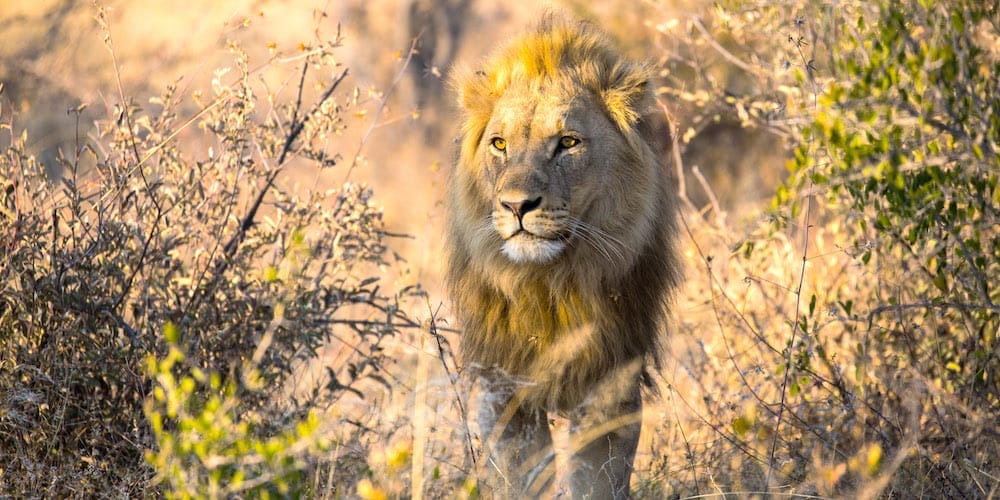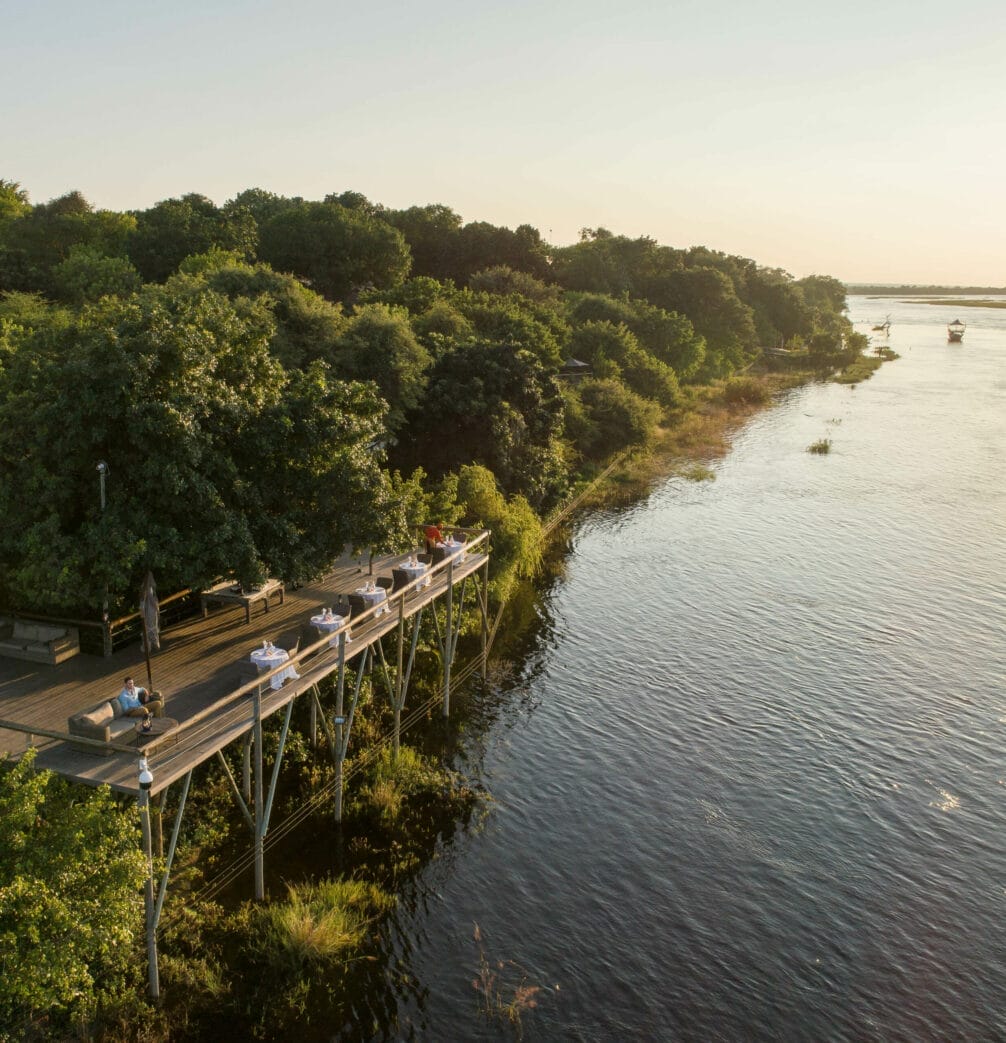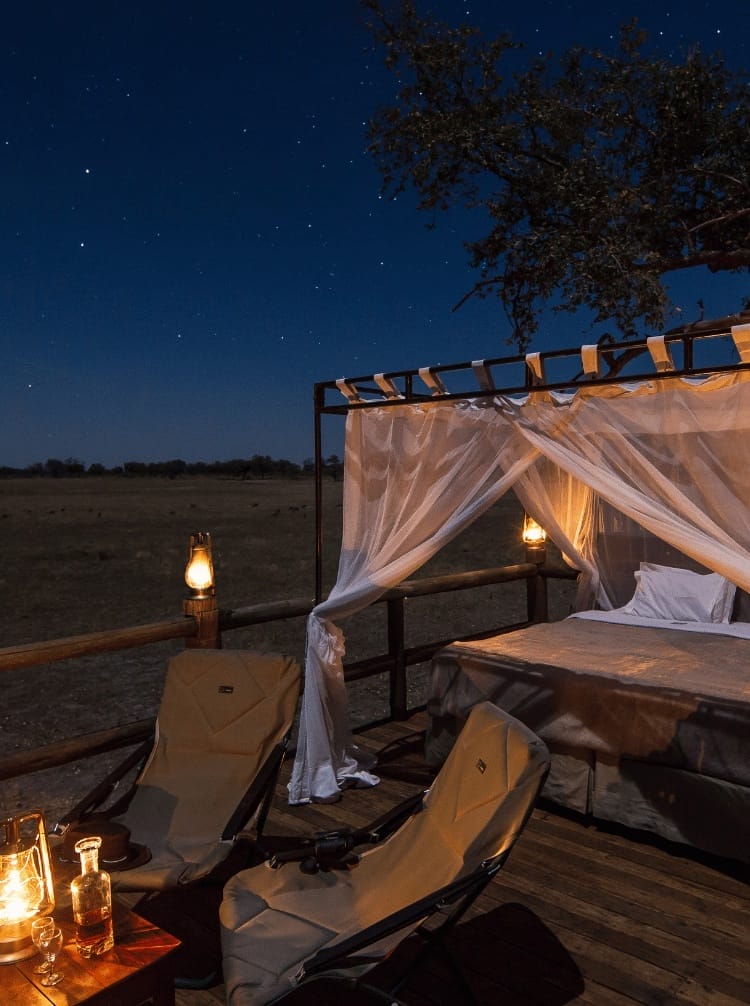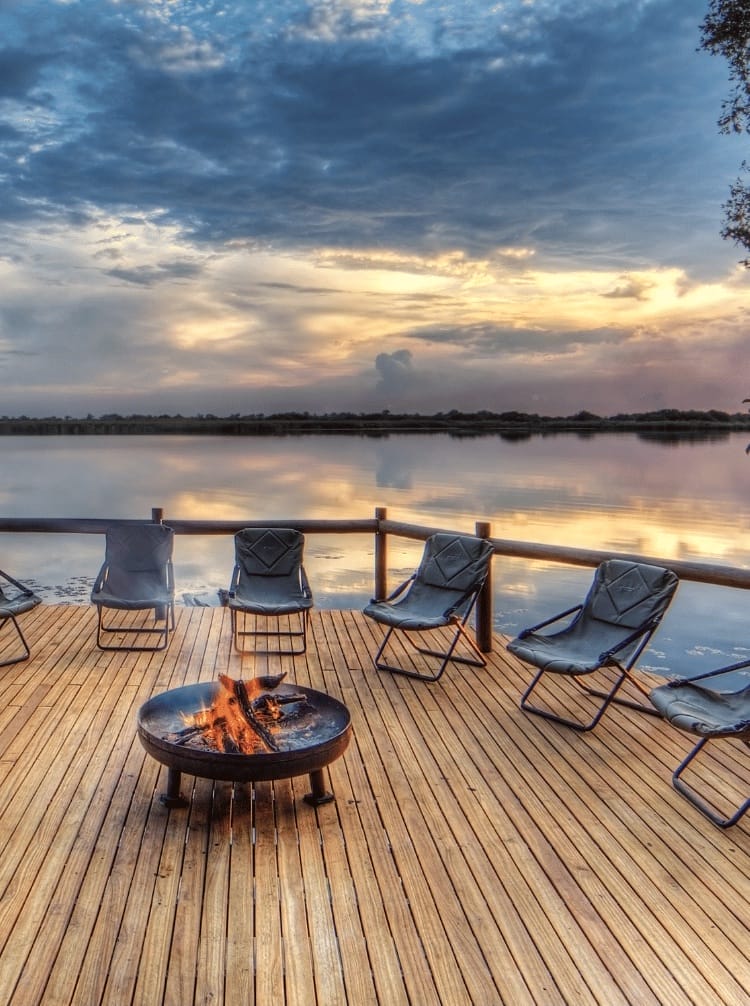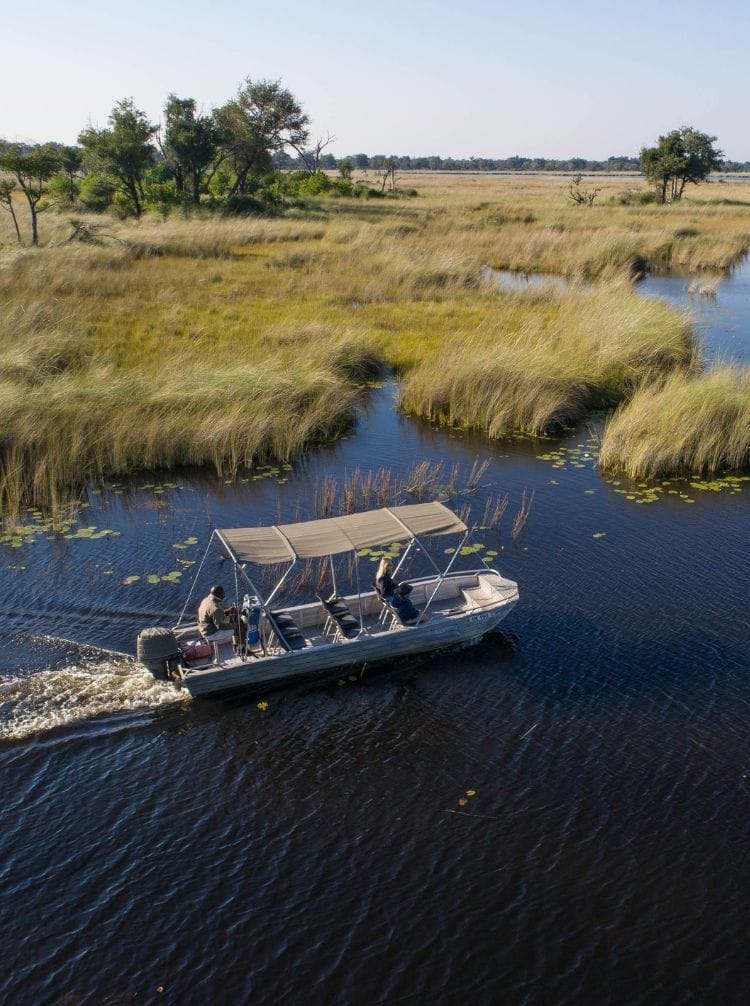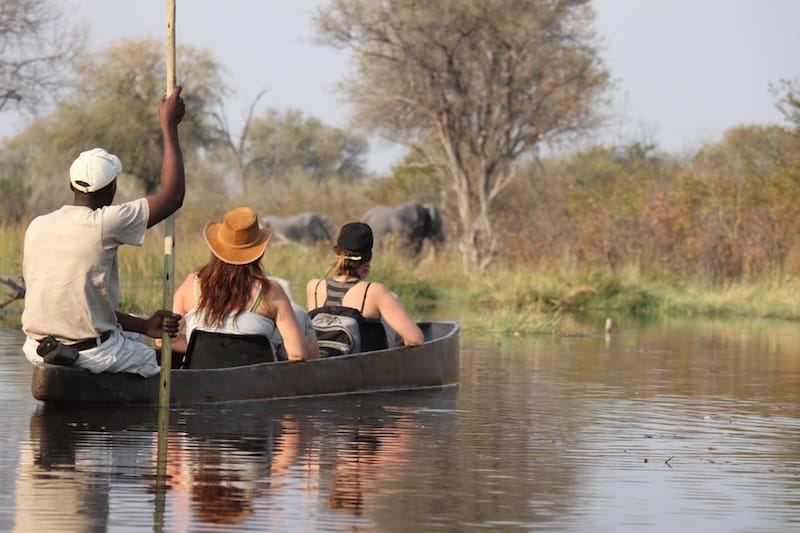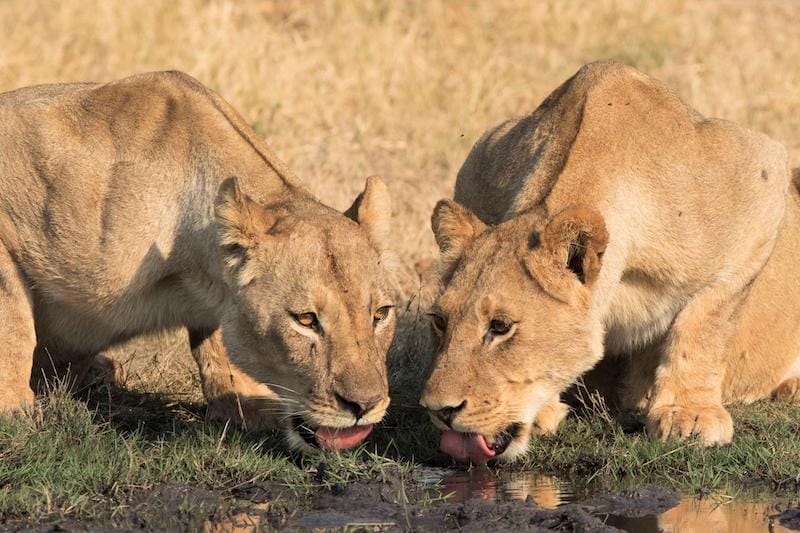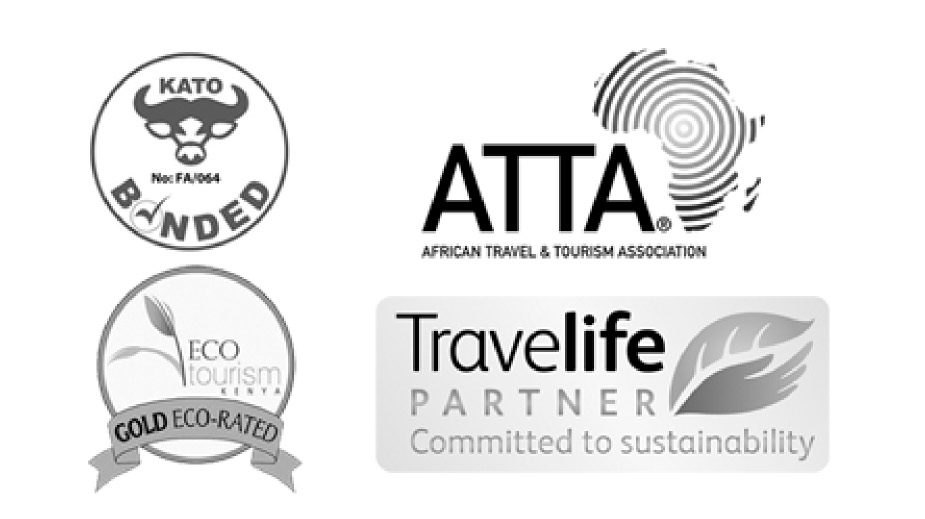Botswana Travel Information
Botswana is a superb destination for any wildlife enthusiasts, offering diverse landscapes, abundant nature and plenty of safari accommodation from camping to high end luxury.
Please find below some useful travel information to help you plan your visit to Botswana.
Quick Facts
Time Zone
GMT + 2
Currency
Botswana Pula (BWP)
International Airports
Sir Seretse Khama International Airport (GBE) in Gaborone; Maun International Airport (MUB) – gateway to the Okavango Delta; Kasane International Airport (BBK) – ideal for Chobe National Park
Best Time
May to October
Malaria
Malaria zone
Languages
English and Setswana
Quick Facts
Time Zone
GMT + 2
Currency
Botswana Pula (BWP)
International Airports
Sir Seretse Khama International Airport (GBE) in Gaborone; Maun International Airport (MUB) – gateway to the Okavango Delta; Kasane International Airport (BBK) – ideal for Chobe National Park
Best Time
May to October
Malaria
Malaria zone
Languages
English and Setswana
Botswana's month-by-month visit guide
Visiting in January
January falls in the green season (November to April), bringing lush landscapes, dramatic skies, and afternoon thunderstorms. Rainfall can be heavy at times, but this is also when birdlife is at its most vibrant and many animals give birth, offering excellent photographic opportunities.
Expect high humidity and warm temperatures around 30–35°C, with fewer visitors and lower rates than the dry season. Wildlife can be more dispersed due to abundant water, but sightings remain rewarding—particularly in the Central Kalahari and Makgadikgadi Pans.

Visiting in February
February is the peak of the green season, with a mix of humid days, clear mornings, and afternoon thunderstorms. It’s a dynamic time for wildlife: herbivores continue to calve, drawing predators to open plains.
While some areas may become muddy or inaccessible, the Kalahari, Makgadikgadi, and Savute regions are spectacular for photography and birding, with colourful migrant species in abundance.
Safari availability is high, and rates remain lower, but activities can occasionally be affected by heavy rains—so flexibility is key.

Visiting in March
March marks the tail end of the rainy season. Expect mostly sunny days with occasional short storms. Vegetation remains dense and vivid, making this a wonderful month for birding and photography, though game viewing can be more challenging.
The Central Kalahari Game Reserve is particularly rewarding as the grasslands burst into life, attracting springbok, oryx, and the predators that follow.
This is also the worst month for mosquitoes, so precautions are recommended. Lodge availability remains good, and prices are still favorable before the dry season begins.
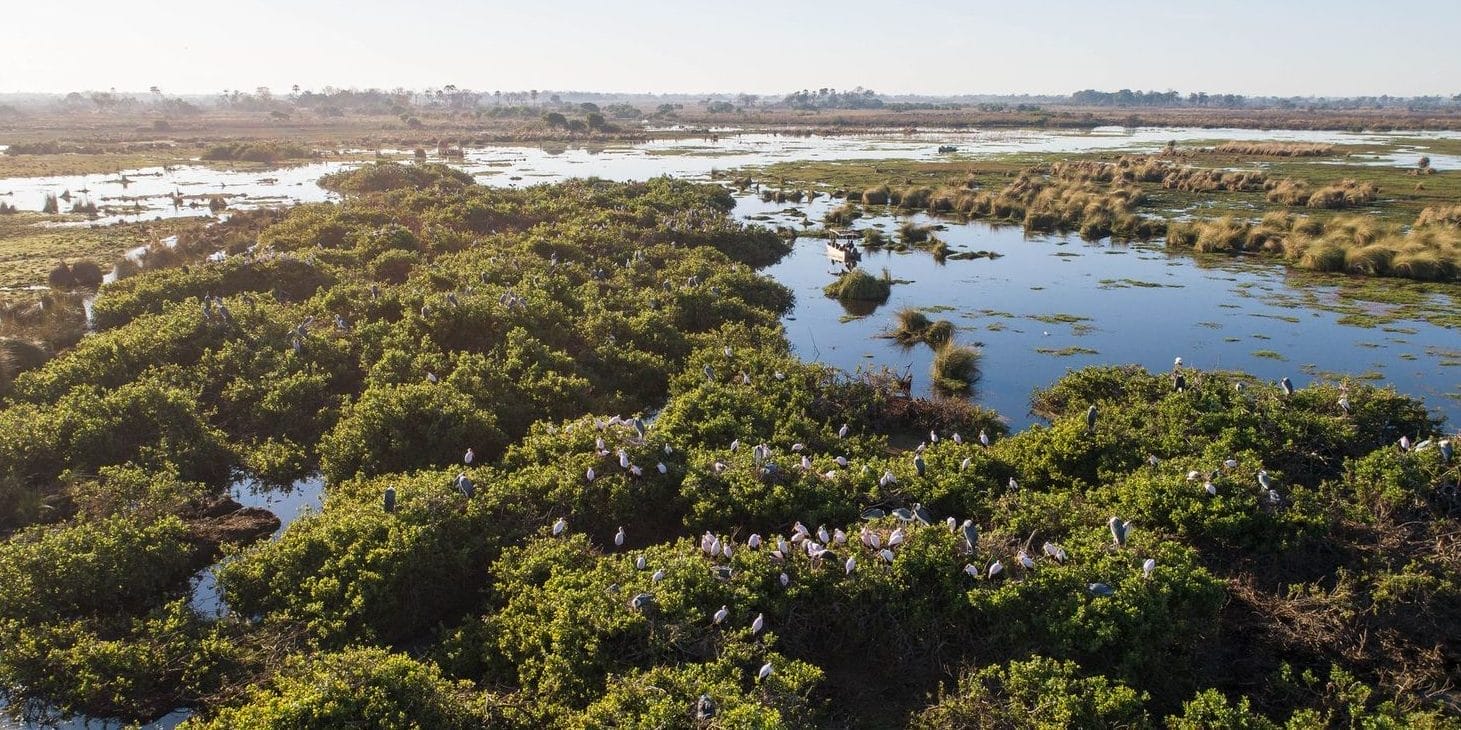
Visiting in April
April is a transition month, as rains subside and temperatures begin to cool. The landscape remains green but starts to dry out, offering a striking contrast for photographers.
Newborn zebra and impala are common, and predator sightings are frequent. Daytime temperatures average 25–30°C, with cooler evenings.
While some areas may still be damp, road access improves, and safari camps offer excellent value before the dry-season crowds arrive.
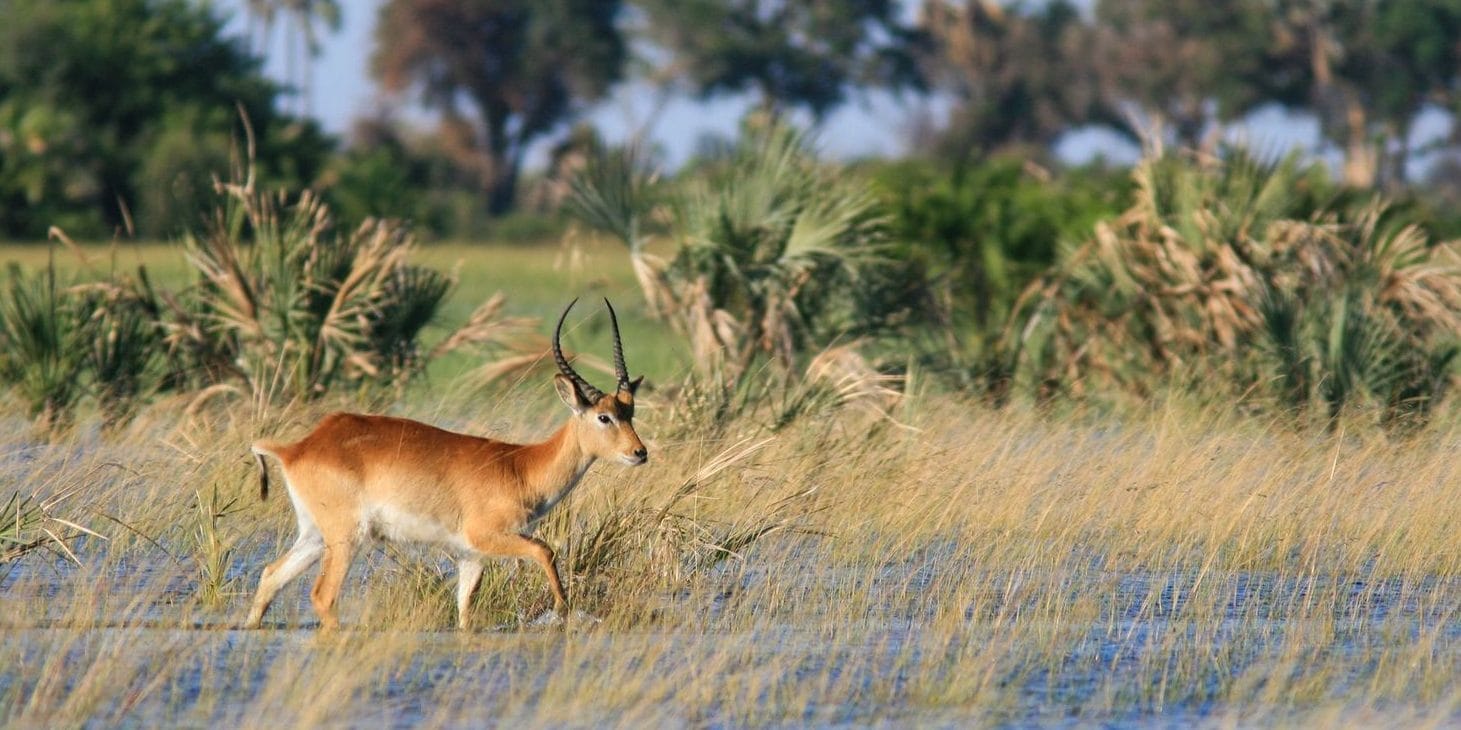
Visiting in May
May is an ideal month to explore Botswana, characterized by pleasant temperatures during the shoulder season. Witness the breathtaking flood into the Okavango Delta, teeming with diverse wildlife and vibrant birdlife. With favorable rates and camp availability due to the off-peak period, it’s an opportune time for travel. While temperatures decrease, especially in the Central Kalahari, chilly nights and mornings offer a unique experience. May also marks a favorable period for Southern Africa, featuring clear skies, warm days, and cool nights. The landscape transitions, providing excellent game viewing and photo opportunities amid lush greenery.

Visiting in June
June signals the start of the dry season and the onset of winter. The weather is cooler (days around 20–25°C, nights 0–8°C) and humidity drops.
Wildlife begins to concentrate around rivers and waterholes, and the Okavango Delta is now beautifully flooded—perfect for mokoro excursions and water-based safaris.
This is a prime safari month, with clear visibility, pleasant conditions, and increasing visitor demand. Lodges in popular regions like Chobe and Moremi begin to fill quickly.
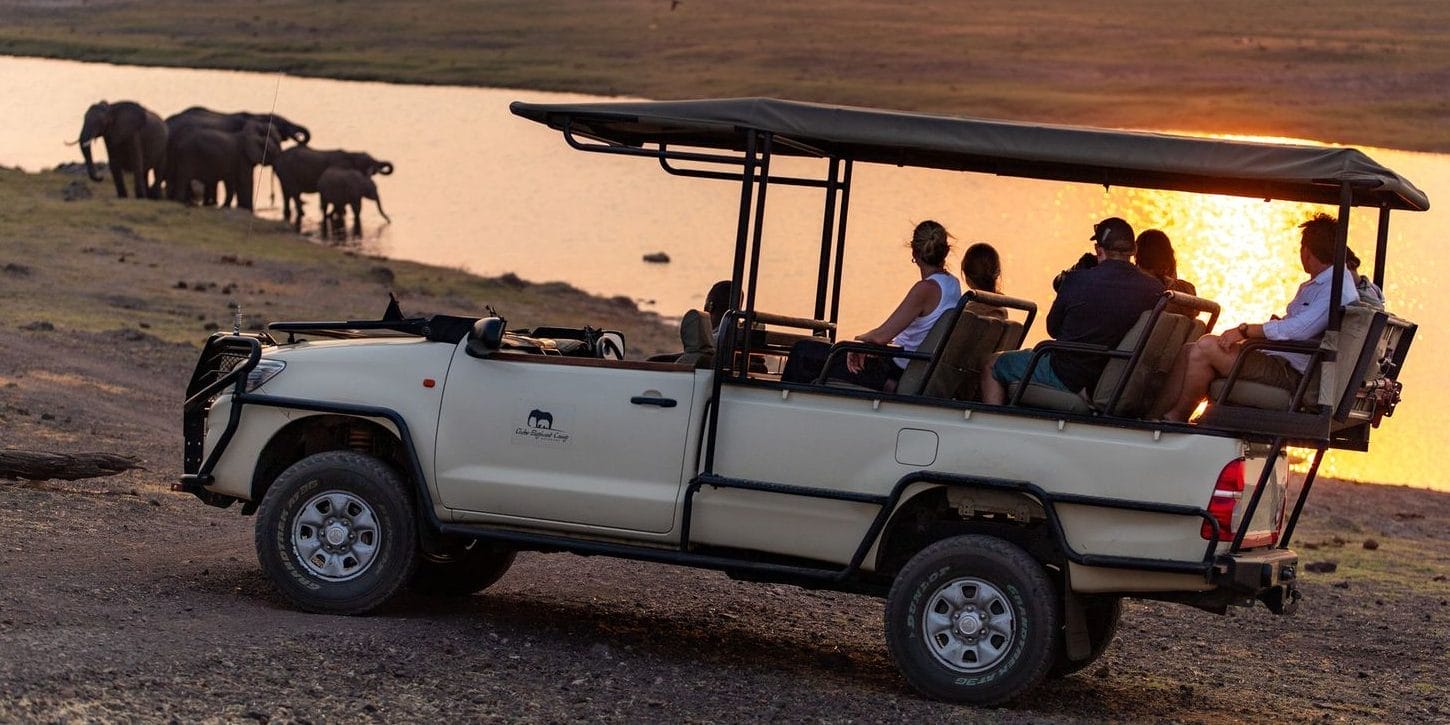
Visiting in July
July is the optimal month to explore Botswana. With dry weather, wildlife viewing is exceptional as water sources dwindle, concentrating animals. The Okavango is fully flooded, creating spectacular scenes, ideal for photography enthusiasts. Lodges in the north are limited, leading to higher rates; consider private reserves. Mokoro excursions from wet camps are best enjoyed this month. The dry winter mornings and nights are perfect for wildlife photography, offering excellent opportunities to spot big cats, as wildlife congregates around the remaining water sources.

Visiting in August
August is the optimal time to explore Botswana. Despite peak-season rates and limited availability on safaris, early bookings are advised. This winter month promises clear skies, cool temperatures, and remarkable wildlife encounters. Elephant sightings peak in the Linganti and Chobe regions. With water sources drying up, game-viewing quality improves as animals concentrate around permanent rivers and watering holes. The month showcases vibrant southern carmine bee eaters in the grasslands. Dry, cool conditions enhance game viewing, particularly in renowned parks like Chobe and Moremi.
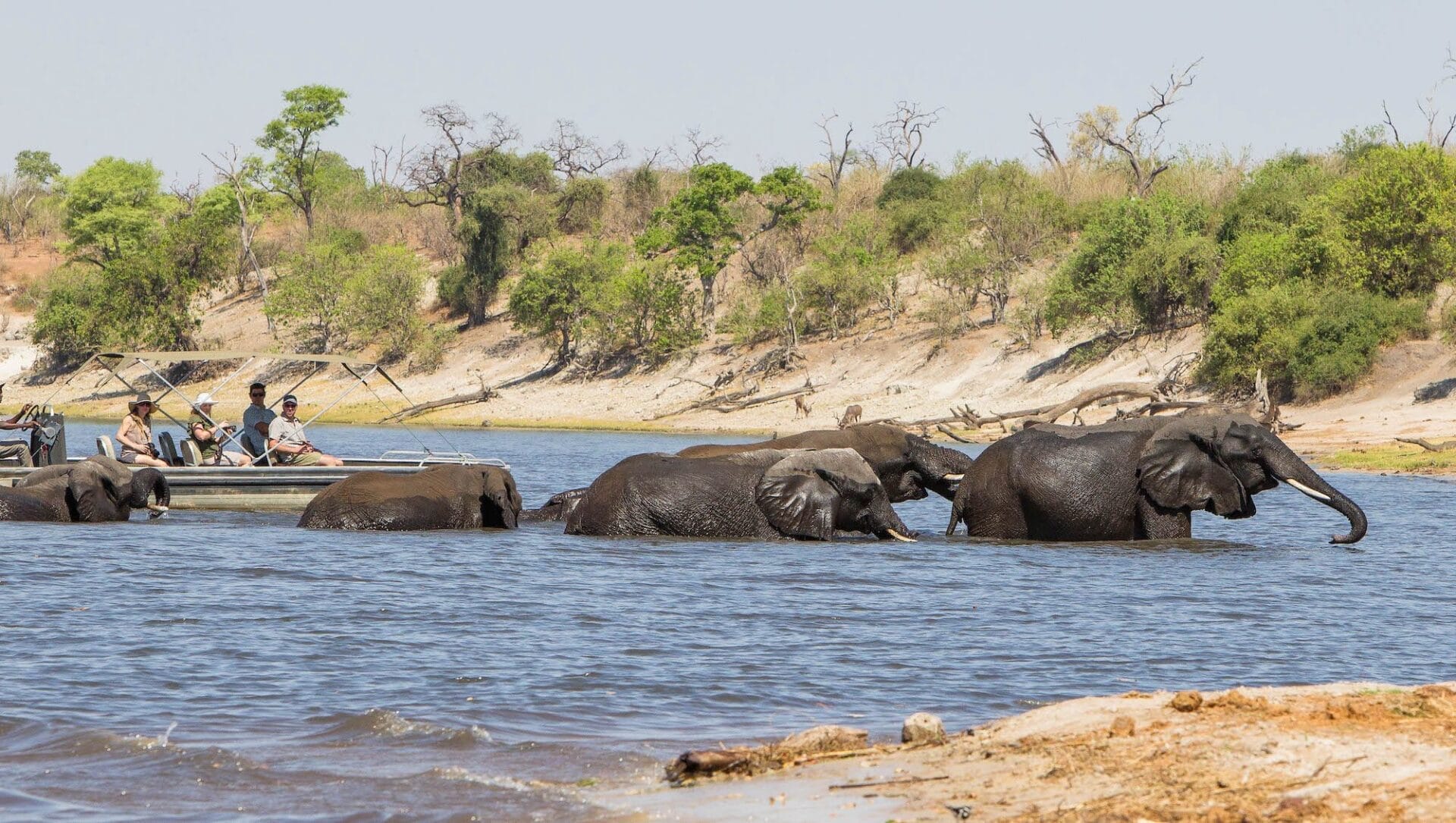
Visiting in September
Ideal for a Botswana visit, September offers prime conditions for spotting abundant big game near scarce water sources. Booking early is key due to limited availability and peak rates. The month presents exceptional photographic safaris, alongside rewarding walks and mokoro excursions. The northern regions boast remarkable elephant numbers, with Kwando and Selinda reserves recommended. As temperatures rise in September-October, it becomes the pinnacle for big game safaris, concentrating wildlife around permanent water sources. While the heat can be challenging, especially in midday, the abundance of wildlife—especially elephants and big cats—makes it a rewarding safari month.
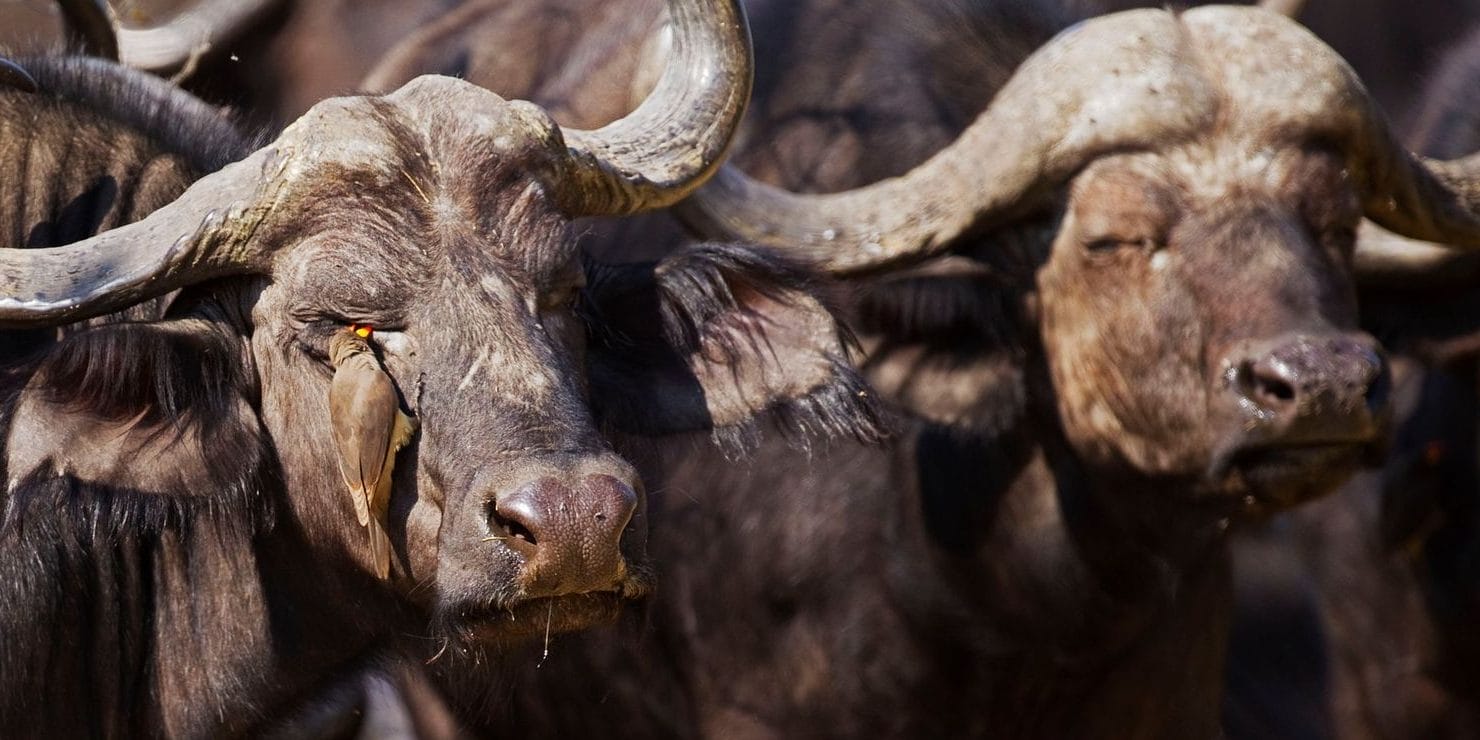
Visiting in October
October in Botswana is optimal for safaris, offering exceptional wildlife viewing. Despite high temperatures, game viewing is excellent, particularly around waterholes where large herds of elephants gather in regions like Chobe and Linyanti. The transitional month, extending from September to October, is considered the prime time for big game safaris. Rising temperatures concentrate wildlife around permanent water sources, enhancing game viewing. With temperatures soaring above 40 degrees Celsius, this period may not be suitable for all travelers, but it provides superb opportunities for photographers and birdwatchers with increased wildlife activity and enhanced visibility in the dry landscape.
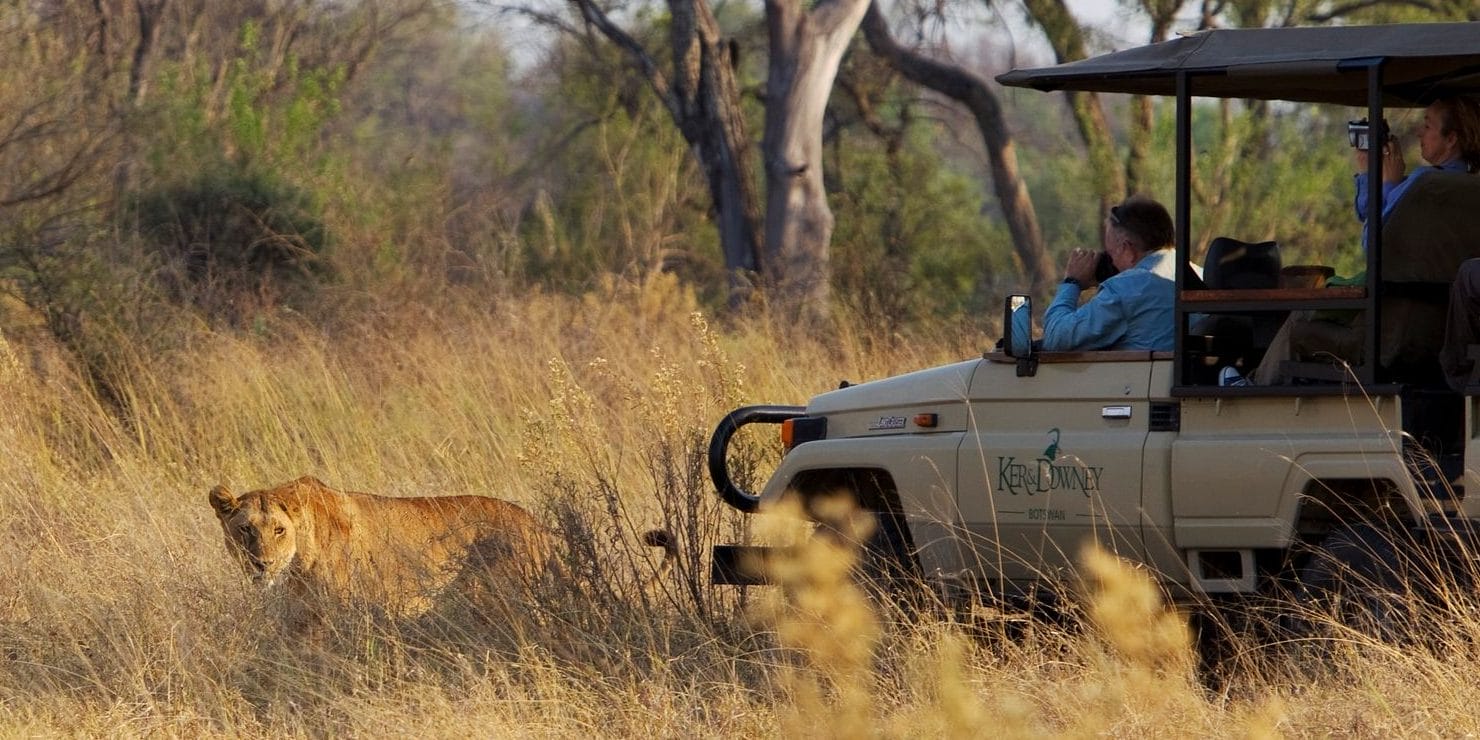
Visiting in November
November brings the onset of the green season. Early rains cool the air and rejuvenate the parched landscape. The first fresh grasses appear, attracting herds and triggering calving season for many species.
Daytime temperatures hover around 30–35°C, dropping to 15–18°C after rain.
Although some tracks can become slippery, this is a fantastic value period, with fewer visitors and great opportunities for birding and photography.
Early November is typically still dry, while later in the month the rains build steadily.

Visiting in December
December in Botswana, amidst occasional afternoon rains, offers a unique experience for visitors. While high humidity in the mornings may make vehicle safaris less comfortable, heavy rains can disrupt activities. Despite this, the month presents excellent opportunities for photographing young animals and lush landscapes. The ‘green season’ from November to March sees numerous animal births, with warm daytime temperatures and sporadic thundershowers. Game viewing may be challenging due to longer grass and thicker vegetation, but it’s an ideal period for birding and exploring regions like Kalahari, Makgadikgadi, or Savute.
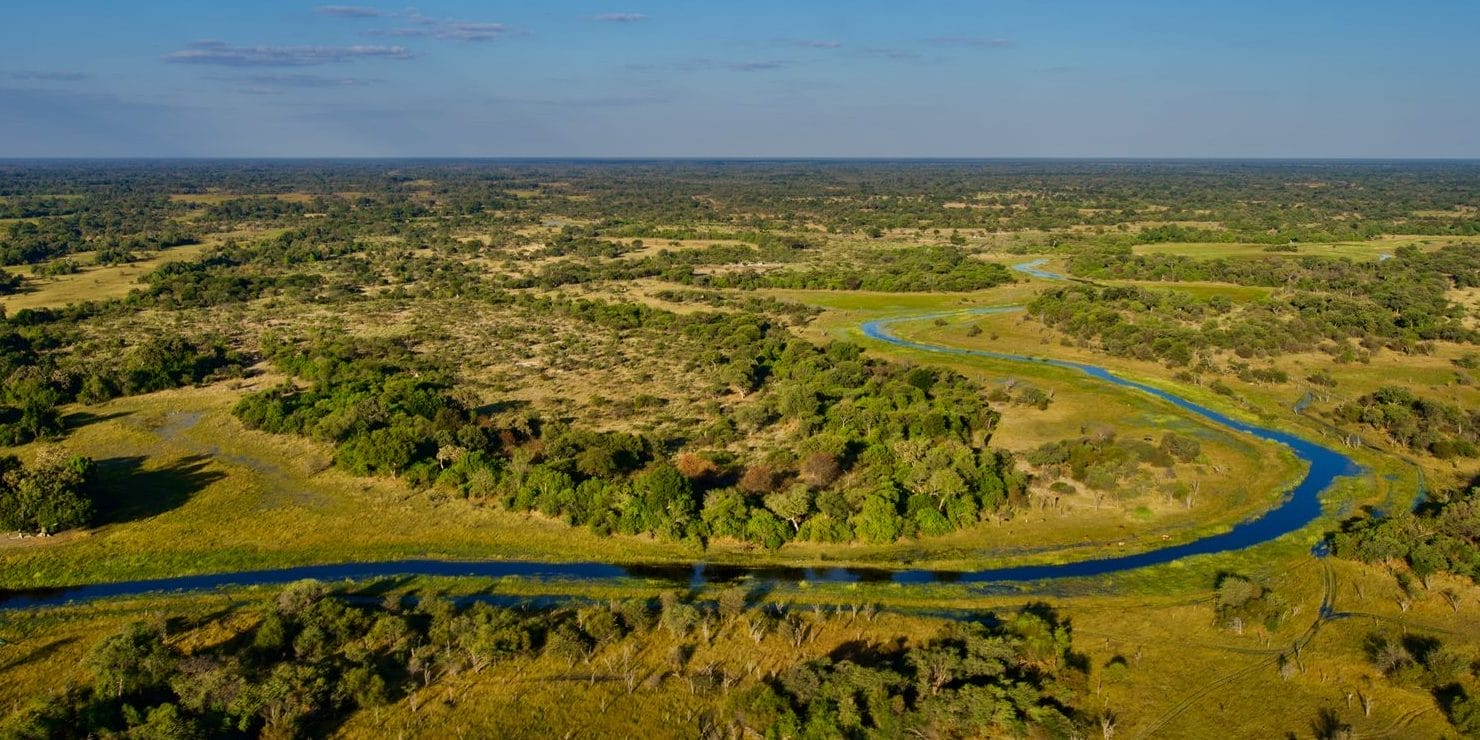
Key Info
- Botswana’s climate is generally semi-arid, with warm days and cooler nights. Daytime temperatures range between 25°C and 35°C, but evenings—especially during the winter months of June to August—can be chilly, so pack a warm layer for early morning game drives.
- The country enjoys two main seasons: the dry season (May to October) and the wet season (November to April).
- The dry months are ideal for wildlife viewing, as animals gather around permanent water sources, while the green season offers lush scenery, migratory birdlife, and fewer visitors.
Botswana's month-by-month visit guide
Visiting in January
January falls in the green season (November to April), bringing lush landscapes, dramatic skies, and afternoon thunderstorms. Rainfall can be heavy at times, but this is also when birdlife is at its most vibrant and many animals give birth, offering excellent photographic opportunities.
Expect high humidity and warm temperatures around 30–35°C, with fewer visitors and lower rates than the dry season. Wildlife can be more dispersed due to abundant water, but sightings remain rewarding—particularly in the Central Kalahari and Makgadikgadi Pans.

Visiting in February
February is the peak of the green season, with a mix of humid days, clear mornings, and afternoon thunderstorms. It’s a dynamic time for wildlife: herbivores continue to calve, drawing predators to open plains.
While some areas may become muddy or inaccessible, the Kalahari, Makgadikgadi, and Savute regions are spectacular for photography and birding, with colourful migrant species in abundance.
Safari availability is high, and rates remain lower, but activities can occasionally be affected by heavy rains—so flexibility is key.

Visiting in March
March marks the tail end of the rainy season. Expect mostly sunny days with occasional short storms. Vegetation remains dense and vivid, making this a wonderful month for birding and photography, though game viewing can be more challenging.
The Central Kalahari Game Reserve is particularly rewarding as the grasslands burst into life, attracting springbok, oryx, and the predators that follow.
This is also the worst month for mosquitoes, so precautions are recommended. Lodge availability remains good, and prices are still favorable before the dry season begins.

Visiting in April
April is a transition month, as rains subside and temperatures begin to cool. The landscape remains green but starts to dry out, offering a striking contrast for photographers.
Newborn zebra and impala are common, and predator sightings are frequent. Daytime temperatures average 25–30°C, with cooler evenings.
While some areas may still be damp, road access improves, and safari camps offer excellent value before the dry-season crowds arrive.

Visiting in May
May is an ideal month to explore Botswana, characterized by pleasant temperatures during the shoulder season. Witness the breathtaking flood into the Okavango Delta, teeming with diverse wildlife and vibrant birdlife. With favorable rates and camp availability due to the off-peak period, it’s an opportune time for travel. While temperatures decrease, especially in the Central Kalahari, chilly nights and mornings offer a unique experience. May also marks a favorable period for Southern Africa, featuring clear skies, warm days, and cool nights. The landscape transitions, providing excellent game viewing and photo opportunities amid lush greenery.

Visiting in June
June signals the start of the dry season and the onset of winter. The weather is cooler (days around 20–25°C, nights 0–8°C) and humidity drops.
Wildlife begins to concentrate around rivers and waterholes, and the Okavango Delta is now beautifully flooded—perfect for mokoro excursions and water-based safaris.
This is a prime safari month, with clear visibility, pleasant conditions, and increasing visitor demand. Lodges in popular regions like Chobe and Moremi begin to fill quickly.

Visiting in July
July is the optimal month to explore Botswana. With dry weather, wildlife viewing is exceptional as water sources dwindle, concentrating animals. The Okavango is fully flooded, creating spectacular scenes, ideal for photography enthusiasts. Lodges in the north are limited, leading to higher rates; consider private reserves. Mokoro excursions from wet camps are best enjoyed this month. The dry winter mornings and nights are perfect for wildlife photography, offering excellent opportunities to spot big cats, as wildlife congregates around the remaining water sources.

Visiting in August
August is the optimal time to explore Botswana. Despite peak-season rates and limited availability on safaris, early bookings are advised. This winter month promises clear skies, cool temperatures, and remarkable wildlife encounters. Elephant sightings peak in the Linganti and Chobe regions. With water sources drying up, game-viewing quality improves as animals concentrate around permanent rivers and watering holes. The month showcases vibrant southern carmine bee eaters in the grasslands. Dry, cool conditions enhance game viewing, particularly in renowned parks like Chobe and Moremi.

Visiting in September
Ideal for a Botswana visit, September offers prime conditions for spotting abundant big game near scarce water sources. Booking early is key due to limited availability and peak rates. The month presents exceptional photographic safaris, alongside rewarding walks and mokoro excursions. The northern regions boast remarkable elephant numbers, with Kwando and Selinda reserves recommended. As temperatures rise in September-October, it becomes the pinnacle for big game safaris, concentrating wildlife around permanent water sources. While the heat can be challenging, especially in midday, the abundance of wildlife—especially elephants and big cats—makes it a rewarding safari month.

Visiting in October
October in Botswana is optimal for safaris, offering exceptional wildlife viewing. Despite high temperatures, game viewing is excellent, particularly around waterholes where large herds of elephants gather in regions like Chobe and Linyanti. The transitional month, extending from September to October, is considered the prime time for big game safaris. Rising temperatures concentrate wildlife around permanent water sources, enhancing game viewing. With temperatures soaring above 40 degrees Celsius, this period may not be suitable for all travelers, but it provides superb opportunities for photographers and birdwatchers with increased wildlife activity and enhanced visibility in the dry landscape.

Visiting in November
November brings the onset of the green season. Early rains cool the air and rejuvenate the parched landscape. The first fresh grasses appear, attracting herds and triggering calving season for many species.
Daytime temperatures hover around 30–35°C, dropping to 15–18°C after rain.
Although some tracks can become slippery, this is a fantastic value period, with fewer visitors and great opportunities for birding and photography.
Early November is typically still dry, while later in the month the rains build steadily.

Visiting in December
December in Botswana, amidst occasional afternoon rains, offers a unique experience for visitors. While high humidity in the mornings may make vehicle safaris less comfortable, heavy rains can disrupt activities. Despite this, the month presents excellent opportunities for photographing young animals and lush landscapes. The ‘green season’ from November to March sees numerous animal births, with warm daytime temperatures and sporadic thundershowers. Game viewing may be challenging due to longer grass and thicker vegetation, but it’s an ideal period for birding and exploring regions like Kalahari, Makgadikgadi, or Savute.

Botswana’s main international airport is Sir Seretse Khama International Airport (GBE), located approximately 15 kilometres from Gaborone, the capital of Botswana.
Maun (MUB) and Kasane (BBK) Airports are also used and can be linked with flights from South Africa.
You can check your best flight route here
Upon arrival, our guide will be waiting for you at the paging area. In case you have any difficulty seeing the rep when you arrive then reach out to us on our 24-hour emergency contact number, +254-723-979370 or +254-733-718904.
Key Info
- Main International Airport: Sir Seretse Khama International Airport (GBE)
All citizens of Commonwealth countries do not require a visa except those from Bangladesh, Cameroon, Ghana, India, Nigeria, Pakistan, and Sri Lanka.
Foreign nationals whose countries have signed a Visa Abolition Agreement with Botswana are also not required to apply for a visa.
Click here for a list of all the countries that require visas.
If you do require a Visa, we advise our clients to apply online for a visa in advance so that they have this before arrival. To check the latest Visa requirements and to apply click here
Present a valid passport of not less than 6 months validity to the Immigration officer at the point of entry.
Key Info
- Citizens of most of the Commonwealth countries do not require a visa - check your country.
- Check passport & documentation prior to travel.
Botswana’s official currency is the Botswana Pula (BWP). For small purchases such as tips, local markets, and minor expenses, it’s advisable to carry some cash in local currency.
You can exchange foreign currency at banks and authorized foreign exchange bureaus in major towns, as well as at Sir Seretse Khama International Airport in Gaborone. Exchange rates at banks and bureaux are generally better than those offered at hotels or lodges.
US Dollars (USD) are widely accepted in many safari camps and lodges, especially in tourist regions like the Okavango Delta and Chobe. Notes must be clean, undamaged, and issued in 2009 or later—older or marked notes are often refused.
Most lodges, hotels, and larger shops in cities such as Gaborone and Maun accept Visa and Mastercard, though a small surcharge may apply. However, card facilities are limited in remote areas, so it’s best to carry sufficient cash for incidental purchases while on safari.
ATMs are available in major towns and airports, offering cash withdrawals in Pula using international Visa or Mastercard debit/credit cards with a PIN. Machines in smaller settlements may not always be reliable or may only accept local bank cards.
If you plan to use your credit or debit card during your trip, inform your bank or card provider in advance to avoid it being blocked as a suspected fraudulent transaction.
Tipping is entirely at your discretion and although it is not a requirement it is customary to tip for good service.
There is not a set amount to tip, so please take the following information as a guideline:
Safari guides or drivers: USD 10–15 (or BWP 130–200) per guest, per day
Trackers or spotters (if separate): USD 5–10 per guest, per day
General camp or lodge staff: USD 5–10 (or BWP 65–130) per guest, per day, shared among the team
Porters or transfer drivers: USD 2–3 per bag or per transfer
Tips can be given in Botswana Pula (BWP) or US Dollars (USD) — ensure bills are clean and undamaged, and ideally issued 2009 or later.
When in doubt, discreetly ask the lodge manager or your guide for local tipping norms.
Gratuities for the general staff are evenly distributed between all team members.
Tipping boxes are usually available on your day of departure from each lodge.
Key Info
- The Botswana Pula (BWP) is the official currency of Botswana.
- There are banks and ATMs at Sir Seretse Khama International Airport and in many major towns.
- Tipping is entirely at your discretion and although it is not a requirement it is customary to tip for good service.
Anti-malarial medication is considered essential and it is also advisable to try and avoid mosquito bites by using repellent and by covering exposed areas of skin, particularly in the evenings when mosquitos tend to be more active.
You can reduce the risk of malaria by using prophylactics (which should be started before arriving in Kenya and under your doctor’s guidance) and by following these simple procedures:
- Wear long sleeves and long trousers to avoid bites from mosquitos, insects and ticks.
- Apply mosquito repellents on a regular basis to exposed skin.
- Where possible sleep under a mosquito net.
- Burn an insect/mosquito repellent candle or coil.
All travellers should be aware of the signs and symptoms of malaria and should be advised to seek immediate medical attention if these occur either whilst abroad or up to a year after their return.
Speak to your Doctor or Travel Health Clinic for more information.
The recommendations regarding vaccinations & anti-malaria tablets need to be discussed with a professional, therefore it is advised that you contact your Doctor/medical centre/ travel health clinic for up-to-date details, this should ideally be done at least 8 weeks before you travel.
The recommendations regarding vaccinations & anti-malaria tablets need to be discussed with a professional, therefore it is advised that you contact your Doctor/medical centre/ travel health clinic for up-to-date details, this should ideally be done at least 8 weeks before you travel.
Key Info
- The recommendations regarding vaccinations & anti-malaria tablets need to be discussed with a professional, therefore it is advised that you contact your Doctor/medical centre/ travel health clinic for up-to-date details, this should ideally be done at least 8 weeks before you travel.
Gamewatchers Safaris is a member of the Kenya Tourism Federation Safety and Communication Centre and is regularly updated on any issues of importance for tourists.
Our head office is based in Nairobi and we work with reputable safari companies who are located on the ground in Botswana. These companies are the eyes and ears on the ground and can inform our head office in Nairobi of any security situation as it may happen, ensuring that we can act and respond swiftly.
In Botswana, you should use the same travel precautions as you would in other parts of the world.
- In the cities and main tourist areas, be on the alert for handbag snatchers and pick pockets.
- Do not travel with any precious jewellery items.
- Make copies of your travel documents and keep these in a safe place – separate from the original documents.
- Split out cash into separate bundles of small amounts and keep separately.
- Ensure that luggage can be locked.
- Always wear sear belts whilst traveling in vehicles and ensure doors are locked.
- Avoid travelling after dark in isolated places particularly empty beaches.
All travellers must have adequate and comprehensive travel health insurance. Make sure your travel insurance covers all the activities you plan on doing in Botswana and covers your full stay in the country and travel to/from.
We are pleased to offer the JWS Travel Policy through JW Seagon with whom we now have an arrangement to book this for our clients at competitive prices. Click here for more details
Key Info
- Gamewatchers Safaris is part of the Kenya Tourism Federation Safety and Communication Centre, receiving regular updates on tourist safety.
- All travellers must have adequate and comprehensive travel health insurance.
- Keep copies of travel documents, lock luggage, wear seat belts, carry small amounts of cash separately, and avoid isolated areas after dark.
In Botswana you’ll find reliable mobile data and Wi-Fi in towns and at major safari lodges, but in the wilderness and remote camps you should expect limited or no internet or mobile signal. If staying connected is important, we recommend letting us check the specific lodge’s connectivity in advance.
Botswana operates on a 230V supply voltage and 50Hz frequency. The country uses plug type G (British three-pin) being the most common in hotels and lodges.
Travel tip:
To stay connected, bring a universal travel adapter that supports type G plug sockets and can handle 230V. Many adapters also include USB ports for convenient charging of phones and cameras.
Key Info
- Reliable mobile data and Wi-Fi in towns but expect little or none in remote wilderness areas.
- Botswana uses a 230 V / 50 Hz supply. Many safari camps operate on solar panels and/or generators—power may be available only at certain hours.
- Bring a universal adapter supporting Type G plug socket and USB ports for easy device charging.
Banned by law since 2007, please do not bring plastic bags to Botswana.
Bringing any type of plastic shopping bag (including duty-free bags, zip-lock food bags, and clear plastic sleeves) into the country is prohibited.
At border points and airports, officials may confiscate plastic bags found in luggage. This rule is taken seriously to protect Botswana’s pristine wilderness and wildlife.
Pack lightly for your safari to include:
- Comfortable, loose fitting cotton clothing in muted and natural tones is recommended.
- Long sleeves and long trousers, shorts and t-shorts with enclosed footwear.
- Jacket or fleece for early mornings and evenings, when it can get chilly.
- Hat to keep the sun off and protect from sunburn.
- Small day pack to hold water bottle, binoculars, notebook and pen, sunglasses, face/hand wipes.
Please note that camouflage-patterned clothes are illegal, so avoid any item like this.
You may be surprised at how VERY cold it can get at night and in the early morning, especially in the higher altitude regions where you will definitely need a warm jacket as it is freezing cold in the early mornings!
See here for our full clothing packing guide
Do not drink water straight from the tap, always drink from bottled water.
Also avoid ice as this may be used from tap water,
Brush teeth with bottled drinking water.
De-Hydration
Always take a bottle of drinking water in your day bag on any activity or excursions – even if it’s a short one – and take regular, small drinks of water.
Wear a hat and sunscreen at all times and cover up/take shade from the heat of the sun, especially during the hottest times of the day.
Bugs and small creatures are all a part of being in the wilds of Africa. It is of course important to take precautions against any opportunity for bites or stings, so being aware is important.
When walking in the bush always wear long trousers and enclosed shoes or walking boots , with thick socks covering the ankles for protection. When walking in long grass, check your legs and clothes for grass ticks – especially in the rainy season, even when you are wearing long trousers.
Check & shake out shoes and walking boots before putting them on.
Always look first to see where you are sitting, when picking something up or when putting your hand/foot into something, like a bag or shoe – check first!
If you think you may have been bitten or stung by something, always inform the Camp Manager & Safari Guide as soon as possible.
Travel Checklist
- Check passport validity
- Check visa requirements
- Check health & malaria requirements with a health professional
- Arrange comprehensive travel insurance
Botswana Safari Tours
To truly experience the wonders of Botswana, a guided safari is the most rewarding way to explore its diverse landscapes and extraordinary wildlife. From the sprawling Okavango Delta and the arid beauty of the Central Kalahari, to the wildlife-rich Chobe National Park and the dramatic pans of Makgadikgadi, each journey reveals a unique side of this remarkable country.
Our safari specialists can craft a tailor-made itinerary to match your interests and pace—or you can browse our curated selection of Botswana safari tours below to start planning your unforgettable adventure.












